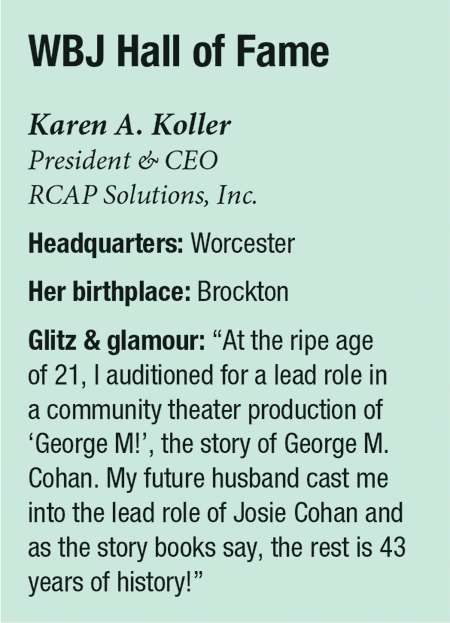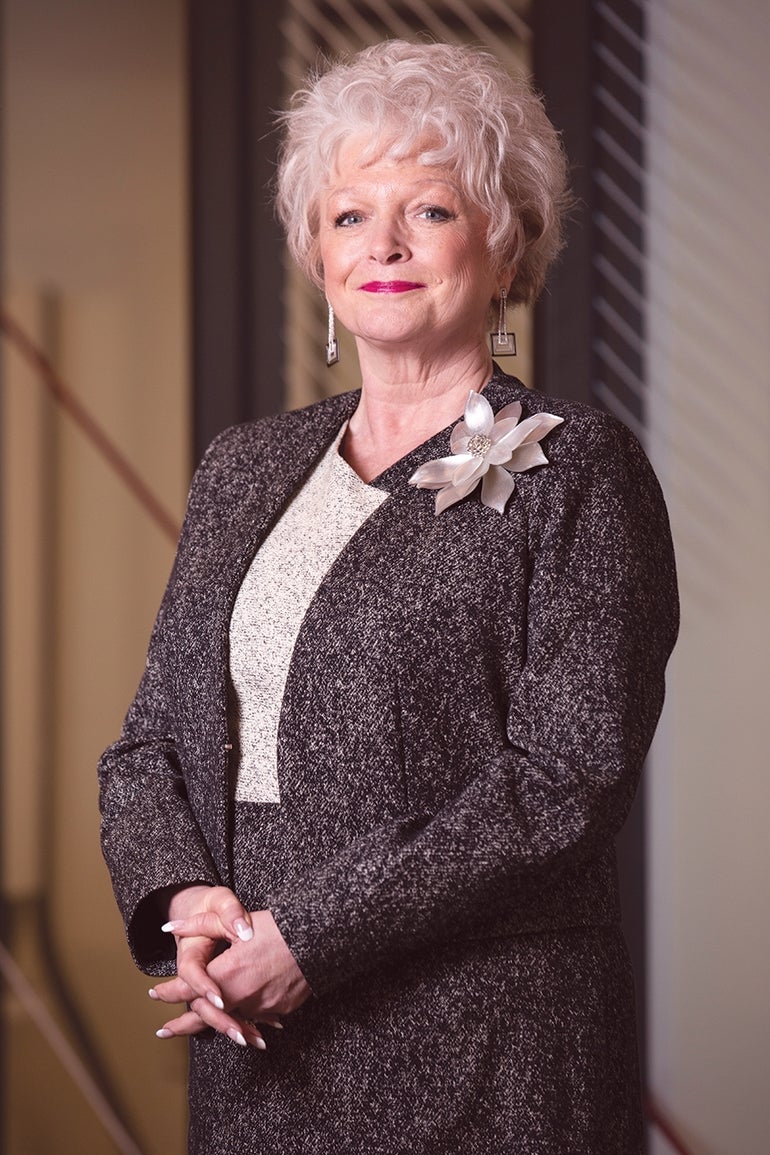
Koller has advocated for rural communities
 Photo | Matt Wright
Karen A. Koller
Photo | Matt Wright
Karen A. Koller
People and community have always been in Karen A. Koller’s blood. That has been true throughout her entire career in Central Massachusetts, first as a human resources professional at medical equipment manufacturer Nypro in Clinton to her current position as the head of nonprofit rental assistance and rural community advocate organization RCAP Solutions.

“I believe in the community itself and the people that are within it,” she said.
At RCAP, the northeast arm of the larger national Rural Community Assistance Partnership, Koller’s love for community and addressing critical needs of those who need help has flourished.
Koller came aboard the organization, founded in 1969 as Rural Housing Improvement, in 2001 after stints as president and CEO of the Greater Gardner Chamber of Commerce, the Waltham West Suburban Chamber of Commerce and as executive director of the New England Healthcare Assembly.
Before Koller came into the picture, RHI’s sole focus was on affordable housing for low-income and elderly individuals in Northern Worcester County.
Immediately, she made her mark and helped transform RHI into a more multifaceted organization, which became RCAP Solutions in 2005.
When she first came to RCAP, it had a budget of $19 million, largely Section 8 funds the organization just facilitated.
“We acted as bankers and paid the landlords,” she said.
Now, RCAP Solutions has grown into a $45-million organization with 10 subsidiary organizations. RCAP has grown its programs, including a housing consumer education program, rural programs like private well assessments, income surveys, and GIS mapping.
RCAP has morphed into a disaster recovery, too. Since it covers the Caribbean, the devastating hurricanes in 2017 and earthquakes in 2018 and 2020 forced RCAP to put boots on the ground when the Federal Emergency Management Agency couldn’t.
“We were able to get in using GIS mapping and other tools to assist rural communities to let them know how damaged their water systems were,” Koller said.
This year marks an important one for Koller and RCAP. After 50 years, it is rebranding and transitioning to a business model not as dependent on government funding, which can be subject to administrative cuts and inconsistencies.
Currently, RCAP’s funding is about 90% from state and federal sources.
“What we’re trying to do ... is rise above the idea that we are federally and state funded,” she said.
Now, the organization is looking at business development initiatives and a 10-year growth plan including basing part of the organization on more of a for-profit model where communities will pay for RCAP’s services.
Many private companies might not bring their GIS mapping and asset management services into small rural towns.
“We can,” Koller said.
Koller expects RCAP to be where her career ends. After a bout with cancer, she’s determined to see through this transition period and continue the work of putting rural America on the same playing field as big cities.
One of the best examples of doing this was when she was head of the Greater Gardner Chamber of Commerce. The state, under former Gov. Michael Dukakis, was reworking exits on Route 2 and adding numbers to exits rather than just names of intersecting streets.
However, the state was going to stop the numbering at Concord.
“I said, ‘What do you mean? Concord is just the beginning of our area. We’re the Mohawk Trail,’” Koller recalled.
Every exit on the route is now numbered, which was a big economic development win for Gardner.
“Those numbers aren’t going to go away,” she said.
Susan Templeton, the chief of staff for State Rep. Harold Naughton, Jr. (D-Clinton) and former president and CEO of the Clinton Area Chamber of Commerce, remembers Koller for her belief in professional growth and advocacy for effective and relevant programs.
Templeton and Koller headed their chambers at the same time and became steadfast friends, said Templeton.
Koller “always wanted her peers in the chamber of commerce industry to measure their own success as leaders by how well their people who worked for them succeeded,” Templeton said.
Koller herself credited her success to her team in any position she’s held.
“It’s never been a Karen show,” she said. “It’s always been about community and finding the resources and other partners and pulling together a team.”
CORRECTION: A previous version of this story incorrectly said Karen A. Koller worked with then Gov. Paul Cellucci to number the exits on Route 2. Koller actually worked with then Gov. Michael Dukakis on that project.









0 Comments